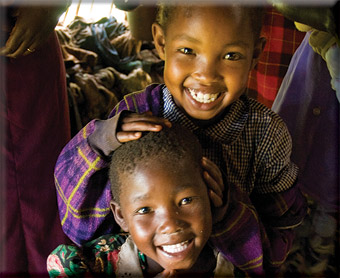A great thing happened in Kenya yesterday: Kenyans went to the polls in peace.
Debatable, however, is whether the new constitution that they passed, 47 years after independence, is good for the country.
I have followed Kenya's politics since visiting there in the wake of deadly post-election violence in 2007. I was intrigued, therefore, to learn of the Kenyan bishops' protests against the new constitution. One problem is that though abortion remains illegal, the new constitution allows for medical and future legislative exceptions. The other problem that is that it allows for Islamic courts. Both are pressing problems and the question now is whether Kenya will be able to address these problems after the constitution has been passed.
The reality is, though, that Kenyans overwhelmingly favored the constitution, so does the church have influence there? Groups within and outside of Kenya, including the U.S. government, also are in favor of the new constitution, which many hope will reduce tribalism and election violence by reigning in presidential powers, enacting land reform, professionalizing the judiciary, and spreading out national resources.
Kenya's bishops seem to be the same place as U.S. bishops frequently are: They are advocating for the an ideal within a democratic system that requires compromise. What's a church leader to do? Interestingly, Bryan asks a similar question when it comes to civil same-sex marriage. The question seems to have some extra gravitas, though, in a still developing country such as Kenya, where a simple election causes massacres. After the last election, many bishops and priests told me that they questioned the church's role in allowing the violence to happen. Christians were killing Christians, after all.
Even if there is no easy answer on what position the church should take on political issues, there is reason for hope: As I reported in Kenya rising, the church is very influential in forming the electorate, particularly the large population of young people. In schools, job training programs, aid programs, parishes, and small Christian communities, the church is helping Kenyans have the hope, knowledge, and ethic to build the future. This focus on the next generation also is shared with the White House, who this week hosted 115 young leaders from 46 African countries at a presidential forum.
The leaders of the country still might be corrupt ($175,000 salary, anyone?), but it takes well-formed individuals to see beyond their abuse of ethnic divisions. In that sense, the peaceful polling was a success for the church, even if the referendum didn't go their way.
(Since I'm now nostolgic for my trip there, here are more pictures from Kenya.)









